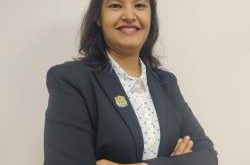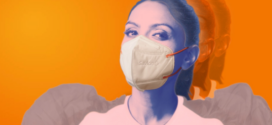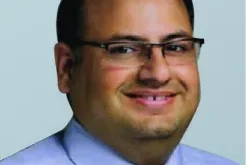Raising Awareness About ADHD among Adults and Children in India
 Attention Deficit Hyperactivity Disorder (ADHD) is a neurodevelopmental disorder that affects both children and adults. Around 7% of school-age children in India suffer from ADHD, one of childhood’s most prevalent neurodevelopmental diseases. Although it can affect anyone, boys are more likely to experience it than girls. ADHD can occur among adults too and most of the times, they don’t even realize that it could be ADHD. Inattention, hyperactivity, and impulsivity are the three main signs and symptoms of ADHD among children whereas among adults they vary.
Attention Deficit Hyperactivity Disorder (ADHD) is a neurodevelopmental disorder that affects both children and adults. Around 7% of school-age children in India suffer from ADHD, one of childhood’s most prevalent neurodevelopmental diseases. Although it can affect anyone, boys are more likely to experience it than girls. ADHD can occur among adults too and most of the times, they don’t even realize that it could be ADHD. Inattention, hyperactivity, and impulsivity are the three main signs and symptoms of ADHD among children whereas among adults they vary.
Some of the common symptoms among adults are:
- Inability to focus on tasks, forgetfulness, and frequent errors due to carelessness.
- Inability to follow instructions and being unorganized
- Inability to manage work and time
- Fidgeting or feeling restless and inability to control emotions
- Feeling impulsive with money, relationships, or other areas of life
- Difficulty with self-esteem and motivation
- Mood swings or irritability
There are numerous widespread misconceptions and preconceptions about ADHD. The most typical ones are:
- Myth: Just a behaviour issue causes ADHD.
- Fact: ADHD is a neurodevelopmental disorder, meaning that it results from variations in the brain functioning.
- Myth: ADHD patients have trouble focusing on anything.
- Fact: Children with ADHD can focus on things that interest them, but they may find it difficult to pay attention to things that are dull or difficult.
- Myth: ADHD will eventually go away in kids.
- Fact : Indeed, ADHD requires lifelong therapy, but it is manageable.
Although raising a child with ADHD might be difficult, These are some pointers for raising an ADHD child:
- Be upbeat and motivating: Negative feedback is frequently experienced by children with ADHD. It’s critical to concentrate on their abilities and successes.
- Provide structure and routine: An atmosphere that is predictable and structured is beneficial for kids with ADHD. Set up consistent schedules for your meals, bedtime, and schoolwork.
- Divide tasks into manageable chunks: Complex tasks may be challenging for kids with ADHD. Tasks should be broken down into smaller, easier to handle phases.
- Provide regular breaks because children with ADHD may struggle to remain still for extended periods of time. Give them frequent breaks so they may stretch their legs and let off some steam.
Treatment Options
Adults with ADHD have a variety of treatment options available. Stimulant medications help, working by boosting brain chemicals that influence focus. Non-stimulants alternatives for those with stimulant side effects. Therapy plays a crucial role too. Cognitive-behavioral therapy equips individuals with coping mechanisms to manage inattention, organization, and emotions. Behavioral therapy modifies problematic behaviors, while social skills training helps with social interactions. Beyond medication and therapy, healthy habits like sleep, diet, and exercise significantly improve overall well-being. Implementing organizational tools and managing stress are also key. Support groups offer valuable understanding and shared experiences. Remember, the best approach is personalized, often combining medication, therapy, and lifestyle changes for optimal results.
Dr. Gowri Ravi Chinthalapalli, Consultant – Child Development, Aster CMI Hospital, Bangalore
 Newspatrolling.com News cum Content Syndication Portal Online
Newspatrolling.com News cum Content Syndication Portal Online





